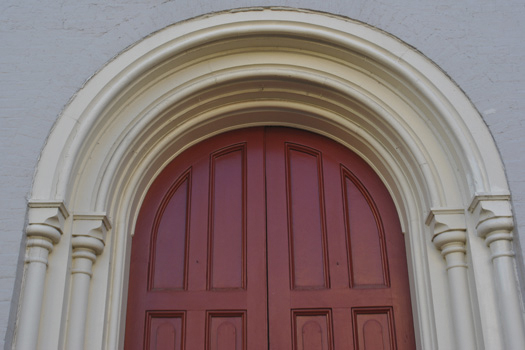“The noble life, or, what comes to the same thing, the Christian life, consists of rising above the petty selfishness and meanness of our individual animal nature; it makes our wealth, our pleasures, our politics, our faith, fruitful in the great organism of society, cooperating with the eternal purpose of God seeking the good of man.”
Kinship of God and Man Volume II, Good and Evil
Lanier was the rector of St. George’s from 1913-1922. He found his career path shifted in his life. He was a member of the Baptist Church and educated to be a teacher not a preacher at Peabody Normal College in Nashville after winning a competitive examination. Following two years at Peabody, he taught school in South Carolina, Alabama and Texas for five years. However, in 1888 Lanier left the Baptist Church and then went into the ministry and was confirmed in the Episcopal Church at Augusta, Georgia. He then enrolled in Berkeley Divinity School in Middletown Conn and was ordinated a deacon in 1910
He never gave up teaching. In 1910 Lanier became the Reinicker Lecturer at the Virginia Theological Seminary. He taught Bible and philosophy in Fredericksburg College, and earlier he had been a member of the faculties of Georgia Military College and of the Georgia Normal and Industrial Institute.
Lanier was the most prolific author of St. George’s rectors, the author of 9 volumes. He had already written four when he came to St. George’s. He was the author of “Kinshop of God and Man (1902), The Church Universal (1911), Reinecker Lectures (1910), The Larger Church (1914), The Master Mason, Masonry and Citizenship (1921), Washington the Great Mason, The Daughter of Hiram Abeif (1923), The Game of Life (1934), The Birth of Man (1938). He presented his books to parishioners as gifts
One of the persistent issues during Lanier’s years at St. George’s concerned the choir. Quenzel’s history of St. George’s reports “In August, 1913, the Misses Kate Doggett, Lucy B. Knox and 1ifary C. Moncure, and other members of the choir, petitioned the vestry for permission to wear chorister er vestments. This petition was granted on condition that it would necessitate no change in the present galleries. On February 24, 1916, Judge A. Wellington Wallace called the vestry’s attention to the “disorganized condition” of the church choir resulting from the lack of a leader. To remedy this situation a committee consisting of Magnus M. Lewis, Houston K. Sweetser and Captain R. Conroy Vance was appointed to canvass the field of available leaders and authorized to appoint one, even if this necessitated exceeding the $240 appropriated for this purpose” Later Christmas presents involving “substantial Christmas of cash” to choir members came up before the Vestry in 1921. It was left in the hands of the music committee and by 1923 was discontinued.
On February 27, 1922, the Reverend Mr. Lanier resigned, and shortly thereafter the bishop of the diocese granted him a leave of absence to become the first and only National Masonic Lecturer of the United States. In 1925 he resumed his ministerial career. From 1931 until his death on September 16, 1942, he lived with his son Dr. Richard Nunn Lanier in Fredericksburg at 709 Cornell Street. Dr. Lanier presented the hymn boards on either side of the Church in memory of his father and also was a member and member of the vestry at St. George’s. Lanier later executive director of the Richard Kirkland Memorial Foundation pushing for the establishment of the Kirkland Monument in 1964.
Richard Lanier bought Federal Hill at 504 Hanover St in 1946. This mansion dates from 1795 and was once owned by Virginia’s third governor Robert Brooke. There was a legal battle between the last owner Elizabeth Graves Lanier who died in 1996 and Lanier’s descendants. The former’s plan had been to open the house as a museum . However, in 2002, Judge John W. Scott, Jr. ruled that plan was a violation of the Lanier will and instead it would be transferred to the George Washington Fredericksburg Foundation and then sold to a private buyer which it was. The proceeds from the sale would benefit “The Richard and Elizabeth Graves Lanier Endowment”
